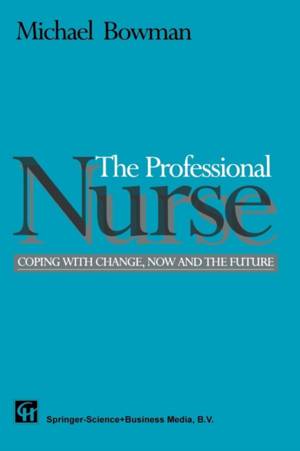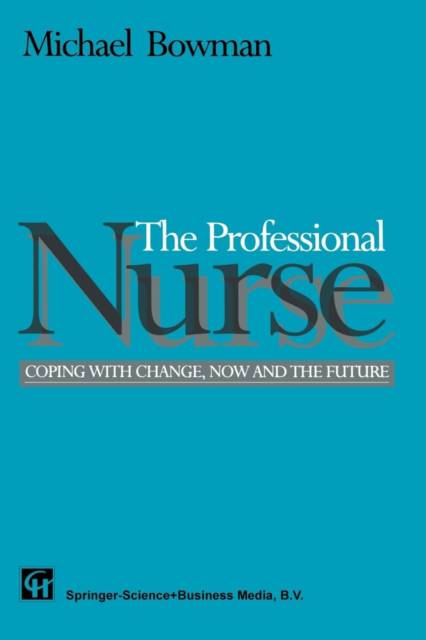
- Afhalen na 1 uur in een winkel met voorraad
- Gratis thuislevering in België vanaf € 30
- Ruim aanbod met 7 miljoen producten
- Afhalen na 1 uur in een winkel met voorraad
- Gratis thuislevering in België vanaf € 30
- Ruim aanbod met 7 miljoen producten
Zoeken
€ 83,95
+ 167 punten
Omschrijving
Michael Bowman's book forms a useful reference source for Health Service staff interested in the role of the professional nurse and the dis charge of professional accountability. I am delighted that this work competently deals with nursing's dilemmas about its therapeutic role over a crucial period in its history, especially the effects of major structural change on the profession between the period from the implementation of the Salmon and Mayston Reports up to the present time and Project 2000. The picture is in Dr Bowman's opinion not a very happy one from the viewpoint of the profession. Some of the changes that have taken place have involved some loss of professional cohesion and were independent of the organizational framework of the National Health Service. Nevertheless, it is disturbing that nurses appear during the period covered to have Ilad a quite inadequate input to the shaping of Health Policy. There are already signs that the nursing profession has begun to absorb the warnings ci ted in Dr Bowman's study. However, in the wake ofthe National Health Service reforms and the implementing of a business culture in the National Health Service, nurses may find the message of this book only too familiar. That does not for one moment mean that the nursing input to corporate strategy and general direction should be defensive or reactionary. British nursing continues to be highly regarded by the general public.
Specificaties
Betrokkenen
- Auteur(s):
- Uitgeverij:
Inhoud
- Aantal bladzijden:
- 246
- Taal:
- Engels
Eigenschappen
- Productcode (EAN):
- 9781565932975
- Verschijningsdatum:
- 1/01/1995
- Uitvoering:
- Paperback
- Formaat:
- Trade paperback (VS)
- Afmetingen:
- 156 mm x 234 mm
- Gewicht:
- 381 g

Alleen bij Standaard Boekhandel
+ 167 punten op je klantenkaart van Standaard Boekhandel
Beoordelingen
We publiceren alleen reviews die voldoen aan de voorwaarden voor reviews. Bekijk onze voorwaarden voor reviews.











